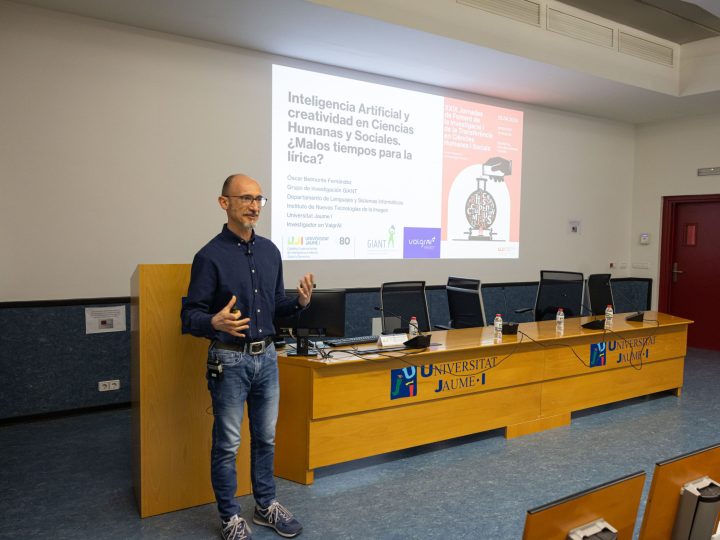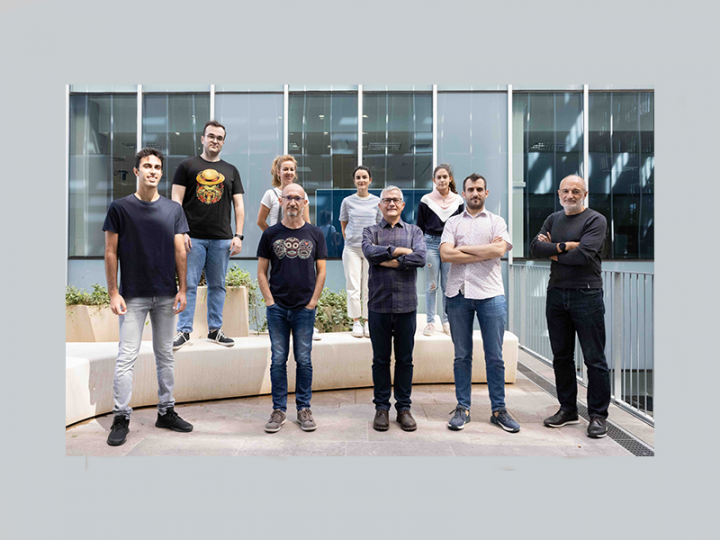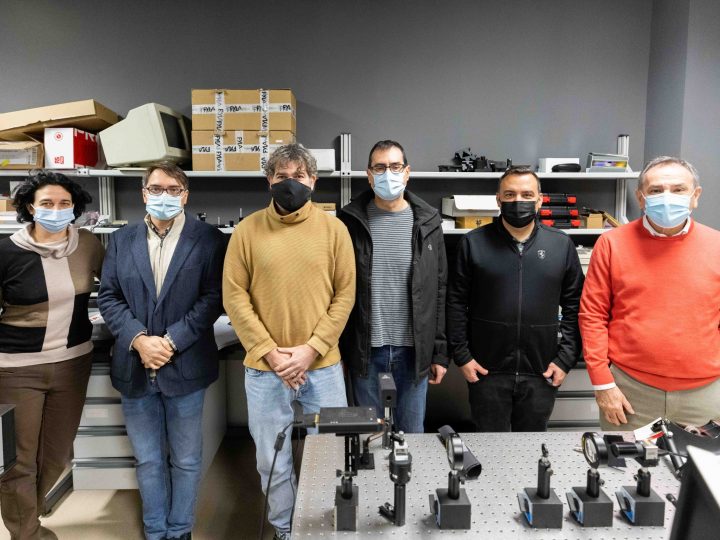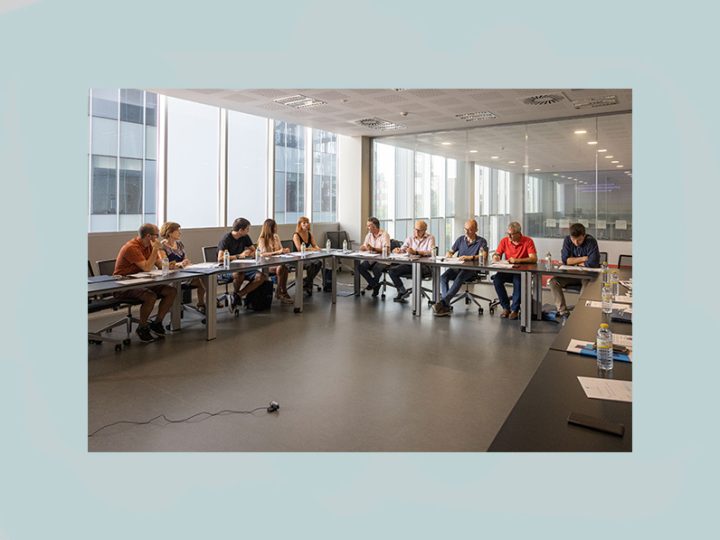
https://www.uji.es/com/investigacio/arxiu/noticies/2020/6/dades-contra-covid-19/
https://www.uji.es/com/investigacio/arxiu/noticies/2020/6/dades-contra-covid-19/
The research groups Geotec, Analysis of 2D and 3D Forms, Statistical Learning in Artificial Intelligence, Esterology and GIANT of the Jaume I University of Castellón participate together with ten other groups from six entities of the Valencian Community in the project «Data science against the Covid-19 »(CD4COVID), a collaborative work that has been carried out voluntarily and altruistically since the beginning of the crisis caused by the pandemic.
The CD4COVID project has recently obtained financing from the Supera Covid-19 fund that Banco Santander launched in April, together with CRUE Spanish Universities and the Higher Council for Scientific Research (CSIC). The fund, endowed with 8.5 million euros to finance programs, projects and support measures, aims to minimize the impact of the crisis caused by the pandemic and focuses on three lines of action: research, impact projects social and strengthening the technological capacity of Spanish universities.
The research «Data Sciences against Covid-19» brings together the participation of civil society (through a citizen survey), experts from the academic-research environment and public administration, with the aim of providing information so that Those responsible for public crisis management can make informed decisions based on scientific evidence obtained from data analysis.
The initiative, linked to the Valencian Strategy in Artificial Intelligence through the presidential commissioner who is the researcher Nuria Oliver, is made up of more than twenty experts from universities and research centers in the Valencian Community and a Microsoft researcher who use the resources of their own institutions. The project includes three main areas of work: modeling of human mobility; Computational epidemiological models and data science for public decision making.
It has been running since the beginning of the crisis in March and its forecast is that it will be operational until the beginning of 2021, when everything suggests that a vaccine will be available and it will no longer be necessary to continue monitoring the epidemic. Daily, the Commissioner of the Valencian Government, Nuria Oliver, prepares a report with the predictions for the day, with additional analysis according to the priorities shared with the members of the Council. In addition to the information obtained (databases, maps or reports) in the three areas of work, the team plans to implement a web portal to disseminate all information that can be shown openly.
The research groups that are part of the working group are Human (ity) Centric Artificial Intelligence from the Ellis Foundation in Alicante; Geotec (led by Joaquín Huerta), Analysis of 2D and 3D Forms, Statistical Learning in Artificial Intelligence, Stereology (with Marina Martínez García) and GIANT (with Emilio Sansano) of the Jaume I University of Castellón; MVRlab: Research Laboratory in Mobile Vision and Lucentia of the University of Alicante; ESI International Chair where Real Time Control for Simulation of the Cardenal Herrera-CEU University; Joint CIPF-FISABIO Biomedical Imaging Unit of the Príncipe Felipe-FISABIO Research Center; Operational Research Center, Valencia Bayesian Research Group and DataScientistUMH of the Miguel Hernández University; and the University Institute of Pure and Applied Mathematics, Valencian Research Institute for Artificial Intelligence (Vrain) of the Polytechnic University of Valencia.
Work areas
The first area, modeling of human mobility, concentrates the analysis of aggregated and anonymised data extracted from the mobile telephone network and shared by the National Statistics Institute (INE), which has an agreement with Telefónica, Vodafone and Orange. From the data of some 5,000 people, the real mobility of citizens since the beginning of the epidemic is analyzed, information is obtained on how containment measures have worked and communities and flows of people have been identified to better predict the Covid-19 spread if outbreaks occur.
The analysis of these data allows them to infer the real prevalence of Covid-19 and to rule out or not a possible situation of “community immunity”. In addition, machine learning methods are applied to predict future situations and explain the importance of certain variables (age, intergenerational households, prevalence of symptoms, etc.) to determine the present and future risk of health departments and study, for example, the needs of positions in the ICU.
Finally, the third area, data science for public decision-making, is in charge of developing daily predictive models of the number of people affected, hospitalized, active cases, ICU and people who have been absent. In addition, it incorporates the data obtained through a citizen survey (with 200,000 responses) that focuses on five aspects: social behavior during confinement; resilience to containment measures; economic and labor impact; state of physical health and state of mind and use of technology. A priority or risk map is also prepared for each of the 24 health departments that predicts the probability of occupying beds of critically ill people during the next five or eight days.






